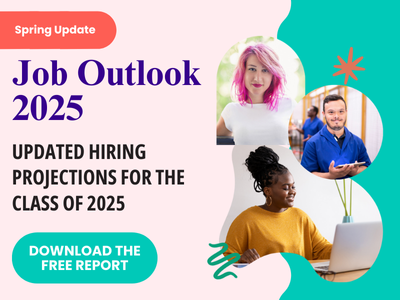Aurora University’s career services office uses ChatGPT as a tool to help its students prepare for job interviews and teach them ethical ways to use generative AI.
Chris de Kok, Aurora’s director of career services, says that the office’s career counselors find it valuable as a tool to brainstorm common interview questions for a particular role or industry in preparation for a meeting with a student.
“We also train students on how to use ChatGPT to roleplay answering behavioral questions, and to help them get feedback on how to articulate their skillset in a way that matches the role for which they're interviewing,” de Kok adds.
Through his work with ChatGPT, de Kok has found that ChatGPT seems to work best when users give it a specific role and parameters. Sample prompts might include:
“Act as a recruiter for [company name]. You are interviewing candidates for the role of [insert role]. Generate a list of 10 questions to ask candidates that will help you evaluate their skills and fit for the role.”
Or:
“You are a recruiter interviewing me for the position of [insert role] at [company name]. Let's roleplay an interview. Ask me 10 questions, one at a time, then let me type a response. At the end, give me feedback on my responses and advice for how my answers can be improved.”
De Kok says ChatGPT has been a great tool in helping students feel more confident in their own interviewing skills.
“It helps them practice and think about how to answer questions more effectively, but in a safe environment,” he explains.
“Using ChatGPT almost as a partner to the traditional ‘mock interview’ appointment with students has helped our career counselors spend less time on the admin tasks associated with appointment preparation and, instead, focus more on the student piece.
“It also has been incredibly helpful in teaching students responsible ways to interact with generative AI, in general. The model of working with it to learn rather than having it do the work for them shows them how it's possible to ethically use these new tools in a beneficial way.”
Like with anything new, there's a learning curve with using ChatGPT, such as with figuring out how to effectively prompt the AI tool and coaching students through being mindful of its limitations.
“We are careful to remind students that they still have to ‘be the human.’ The AI can suggest ways to answer interview questions or can try to predict what it thinks are the most common types of questions for a particular role, but the student still has to use their own critical-thinking skills to evaluate those and has to ensure that their personal answers are authentic and truthful when they go into an interview,” he cautions.
“It also obviously can't replace something like an in-person mock interview, so while it's a great tool, the traditional practice methods are definitely still valuable.”
De Kok encourages his colleagues in career services to experiment with AI and use it often.
“Don't be afraid to try to use generative AI in new ways,” he says.
“As an emerging technology, it can already do so much, but things are evolving and changing constantly, so the only real way to keep up with it is to be a little experimental and tinker with it. There are a ton of great resources online with best practices, tips, tricks, and more, so keeping up with those helps as well.”
Aurora career services has been expanding its use of technology and AI with its students. For example, the office has used grant funds for Meta Quest 3 headsets and a program called VirtualSpeech to do immersive VR mock interviews. De Kok explains that the program performs AI-backed roleplays with students so they can practice interviewing, negotiating, having difficult conversations at the workplace, and more, while the VR headset adds another layer of immersion and allows for real-time feedback on eye contact, use of filler words, talking speed, and more.
“We're careful to still keep the human element in these appointments and to ensure that we are guiding the student through the process,” de Kok stresses.
“But ChatGPT has been a really great tool in helping to make these types of ‘interview help’ appointments a little more interactive, while also being able to teach students helpful AI skills that will benefit them beyond just using it for interview preparation.”







